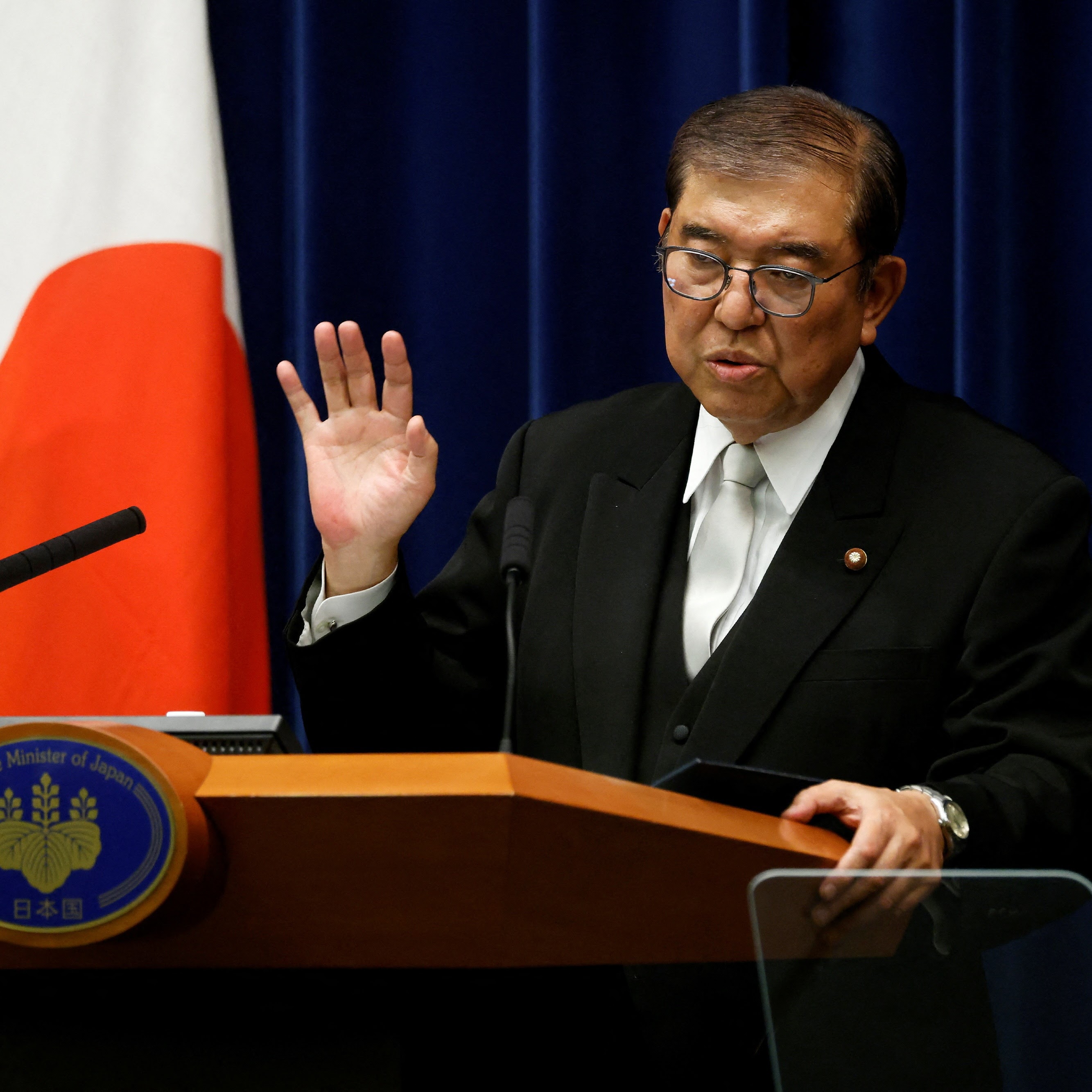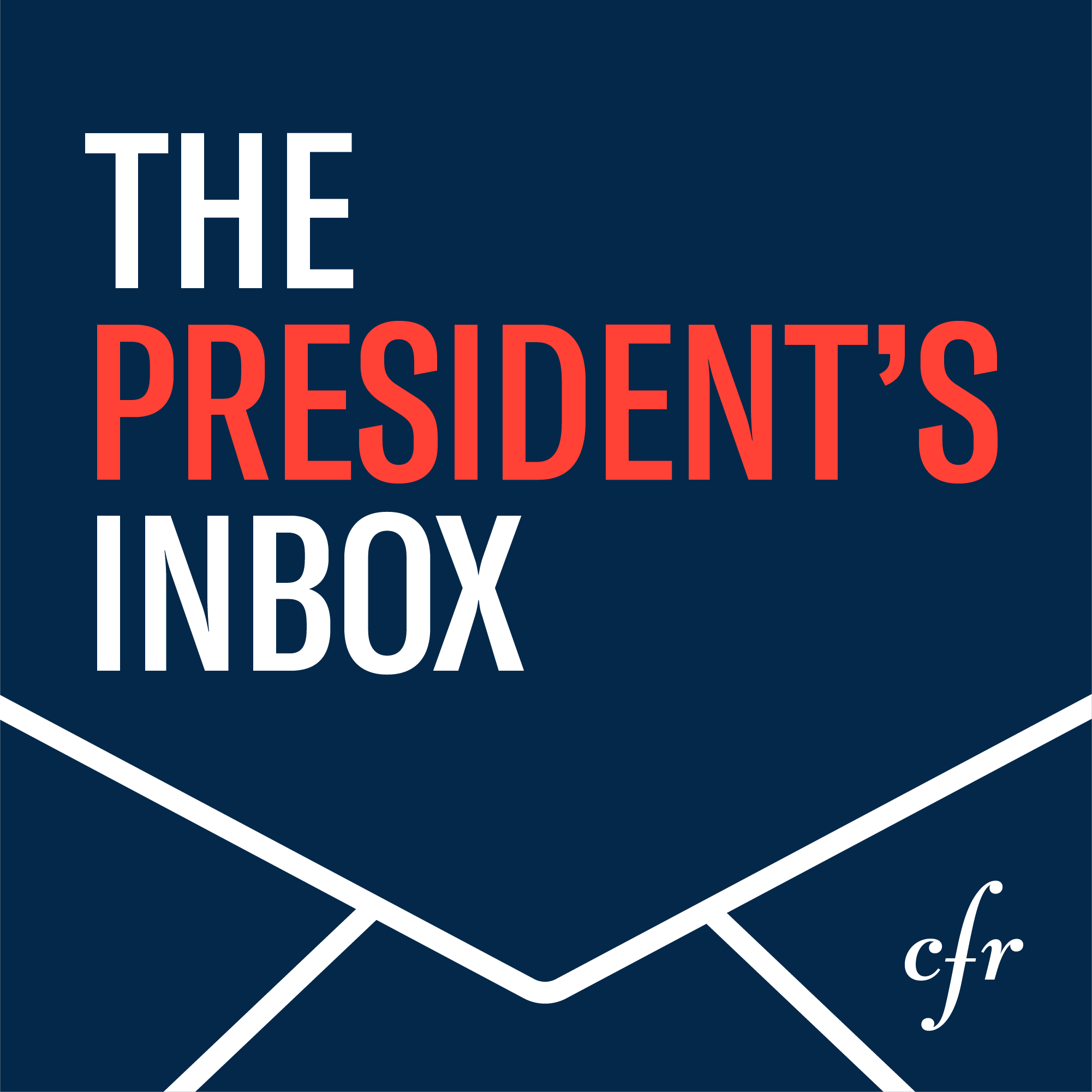
Japan Reacts to Trump’s Victory, With Sheila Smith (Transition 2025, Episode 6)

The President’s Inbox
Deep Dive
Why was Japan's reaction to Trump's victory not a big surprise?
Japan had a reasonably comfortable relationship with Trump during his first term, thanks to Prime Minister Shinzo Abe's early efforts to build a personal rapport with him. This established a foundation of trust and confidence in the U.S.-Japan partnership.
What are Japan's primary security concerns in the region?
Japan's top security concern is the rise of China, which it identifies as an existential threat. Other concerns include nuclear proliferation by North Korea and the growing military cooperation between Russia and China, which could pose regional challenges.
How has Japan's defense strategy evolved in recent years?
Japan has revised its national security strategy to focus on threats, particularly from China. It has also committed to increasing defense spending to 2% of GDP, similar to NATO standards, and is investing in long-range strike capabilities, including Tomahawk missiles.
What challenges does Prime Minister Ishiba face domestically?
Prime Minister Ishiba leads a minority coalition government after the LDP lost 58 seats in the recent election. He faces potential failure in passing the national budget, which could lead to a no-confidence vote and his removal from office by April.
How does Japan view the trilateral relationship with the U.S. and South Korea?
Japan values the trilateral security cooperation with the U.S. and South Korea, which has seen significant progress in recent years through joint military exercises and intelligence sharing. However, political instability in South Korea poses challenges to maintaining this relationship.
What role does trade policy play in U.S.-Japan relations under a Trump administration?
Trade policy, including tariffs and burden-sharing, is a key issue in U.S.-Japan relations. Japan has shown flexibility in negotiating trade agreements during Trump's first term and will likely continue to engage in discussions to address U.S. concerns while protecting its economic interests.
How does Japan's economic reliance on China affect its foreign policy?
Japan's economy depends on China for around 10-15% of its trade and investment, creating a delicate balance in its foreign policy. While Japan is concerned about China's rise, it must also manage its economic ties, which could limit its ability to take a hardline stance.
What is the significance of Japan's establishment of a permanent joint operational command for its military?
This marks a significant shift for Japan, as it transitions from a largely administrative command structure to a joint operational command, similar to NATO. This change reflects Japan's commitment to enhancing its military readiness and capability in response to regional threats.
How does Japan view the potential transfer of Russian military technology to North Korea?
Japan is deeply concerned about Russia's potential transfer of advanced technologies, such as satellite and missile systems, to North Korea. This could significantly enhance North Korea's military capabilities, posing a greater threat to Japan's security.
What is the current state of the Japan-South Korea military-to-military relationship?
The military-to-military relationship has improved, with trilateral exercises involving the U.S., Japan, and South Korea. However, recent political instability in South Korea threatens to undermine these gains, creating uncertainty in the trilateral security framework.
- Japan's reaction to Trump's victory was a mix of surprise and worry.
- The relationship between Shinzo Abe and Trump was crucial in the first term.
- Ishiba faces a different challenge due to his political position and Trump's changed approach.
Shownotes Transcript
Sheila Smith, the John E. Merow senior fellow for Asia-Pacific studies at CFR, sits down with James M. Lindsay to discuss how Trump’s victory is being viewed in Japan and what his presidency will mean for U.S.-Japanese relations and the security situation in northeast Asia. This episode is the sixth in a special TPI series on the U.S. 2025 presidential transition and is supported by the Carnegie Corporation of New York.
Mentioned on the Episode
Sheila Smith, Japan Rearmed: The Politics of Military Power)* *
Sheila Smith, "Governing from Weakness: The LDP Under Prime Minister Ishiba Shigeru)," The Diplomat
For an episode transcript and show notes, visit The President’s Inbox at: https://www.cfr.org/podcasts/tpi/japan-reacts-trumps-victory-sheila-smith-transition-2025-episode-6)